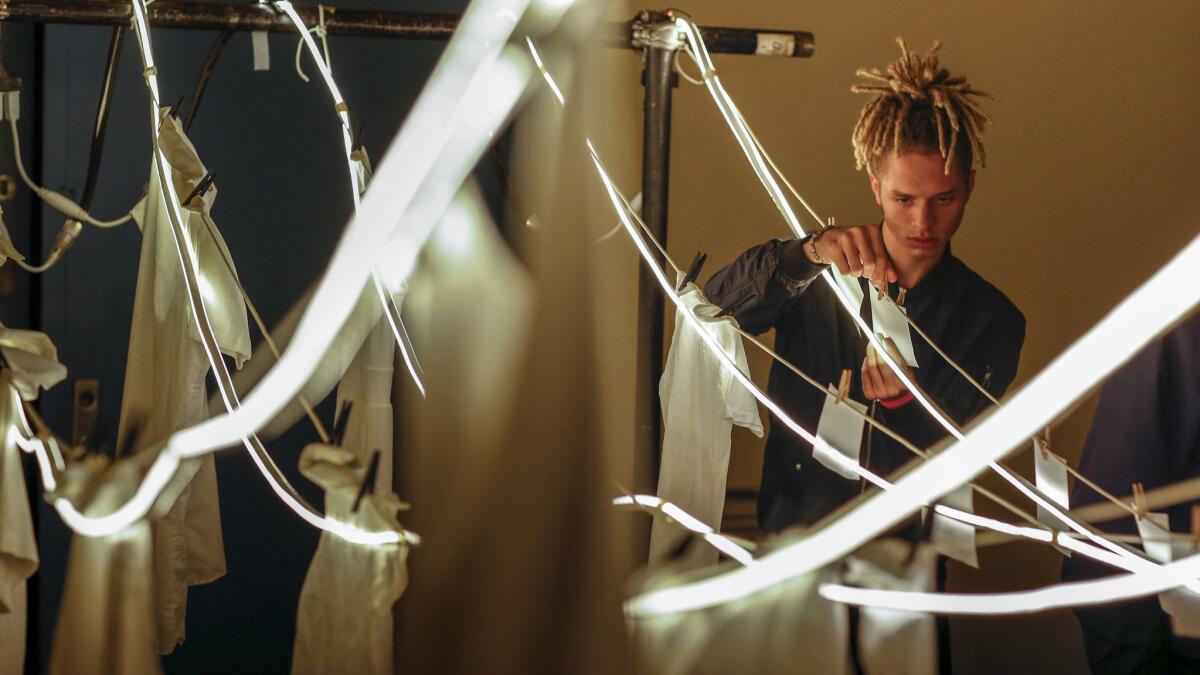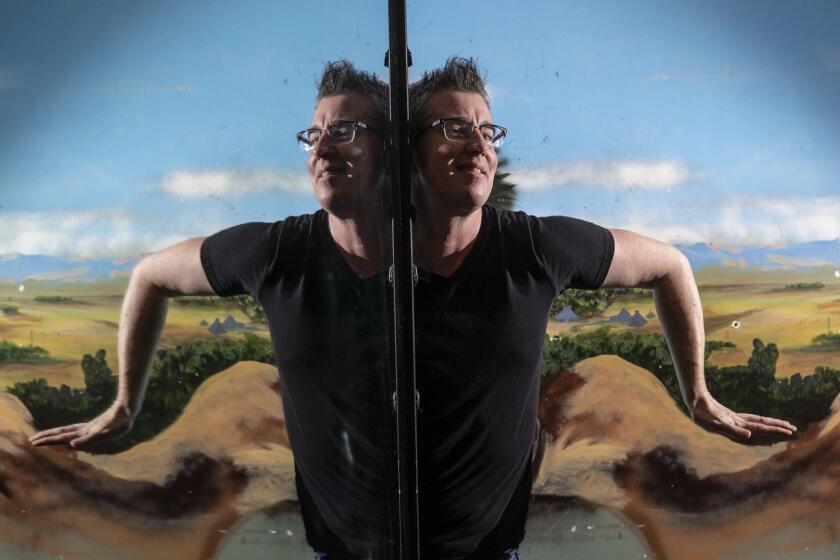Two L.A. artists earn 2020 Doris Duke awards. The prize: $275,000
- Share via
L.A. choreographer Ana Maria Alvarez burst into tears after learning she was being named a 2020 Doris Duke Artist, a distinction that comes with a $275,000 prize. As the founding artistic director of dance theater company Contra-Tiempo, Alvarez has seen most of her gigs canceled and the majority of her company return to their hometowns in recent months.
“Pretty much, our next two years are going to be majorly impacted,” said Alvarez, who got the news about a month and a half ago. The award “allowed me a little bit of a breath, to be able to see the big picture, which has been a gift.”
Alvarez is one of eight artists who are receiving this year’s Artist Award, the Doris Duke Charitable Foundation announced Thursday. Recipients include L.A.-based playwright and director Michael John Garcés; choreographers Sean Dorsey, Rennie Harris and Pam Tanowitz; jazz artists Andrew Cyrille and Cécile McLorin Salvant; and playwright-performer Dael Orlandersmith.
According to the foundation, the award is not for lifetime achievement but rather “a deep investment in the creative potential of dedicated artists.”
Disbursed over five years, $250,000 of the award is unrestricted and $25,000 is dedicated to encouraging savings for retirement.
Awardees are nominated anonymously by their peers, then evaluated by a panel of arts professionals. From there, the foundation’s arts program staff recommend a final roster of grantees to the organization’s president.
In the opening vignette of Sean Dorsey’s latest work, “Boys in Trouble,” the choreographer performs a gentle solo within the confines of a single spotlight.
After learning about the award, Alvarez first thought about how it could help support Contra-Tiempo, a company that blends salsa, Afro-Cuban, hip-hop and modern dance to confront social injustices. The company’s latest touring production “joyUS justUS,” explored joy as an act of radical resistance.
The foundation “immediately said no,” Alvarez, 42, said. The money isn’t meant for an organization.
“It really is about sustainability and supporting you as a person and the idea that so many artists never invest in themselves — like I have no retirement, I have no college fund for my kids,” she said. “As an artist, you’re always thinking about the next project. You’re always putting everything into the work that you do.”
Previous winners have included tap choreographer Michelle Dorrance and playwrights Lynn Nottage and Young Jean Lee. Prize money has been used to pay for healthcare, a down payment on a house and investment in the education of winners’ children.
Garcés, artistic director of the community-based Cornerstone Theater Company, also first thought about funding his artistic projects when he learned he would be a Doris Duke Artist. (The foundation, to preserve the element of surprise, called under a ruse: It initially said it was talking to arts leaders about the pandemic, then it dropped news of the prize.)
“A lot of my freelance work has evaporated over the past few months,” Garcés, 53, said. “To get this kind of news in this moment is particularly acute in terms of impact on one’s life.”
Garcés’ work tackles social issues in marginalized communities including immigration, food inequity and housing.

“It creates the material conditions for you to be able to continue to do your work, to continue to be ambitious, continue to take risks, which feels really crucial right now to be able to focus on how one might make work in this new world,” he added.
The Doris Duke Artist Award began in 2012 as part of a larger $50-million initiative. Last year, the foundation named six artists. Two more were added this year because of the pandemic’s impact on the arts.
“We are concerned that artists may not be able to continue their careers with that being their main pursuit,” said Maurine Knighton, the foundation’s program director for the arts. “It was Doris Duke’s deep interest that performing artists would be supported, so that they could have dignified lives and livelihoods through their artistic pursuits.”
Although the award honors individual artists, Alvarez and Garcés noted the importance of community to their careers.
“My work is deeply collaborative, and at its core, embodies what is possible when people truly see, hear and uplift one another,” Alvarez said. “I don’t see this as an award for just me but an acknowledgement of this truth.”
More to Read
The biggest entertainment stories
Get our big stories about Hollywood, film, television, music, arts, culture and more right in your inbox as soon as they publish.
You may occasionally receive promotional content from the Los Angeles Times.












